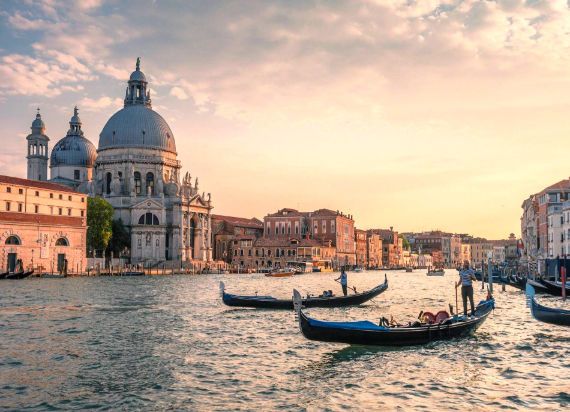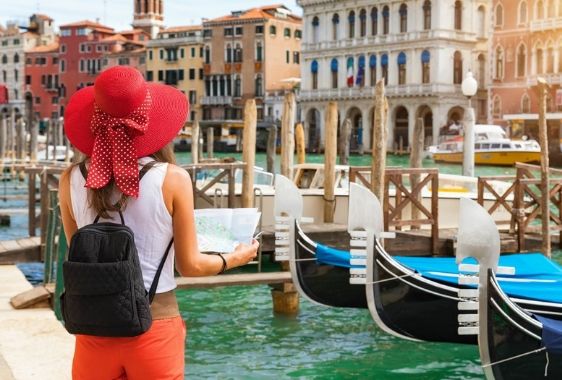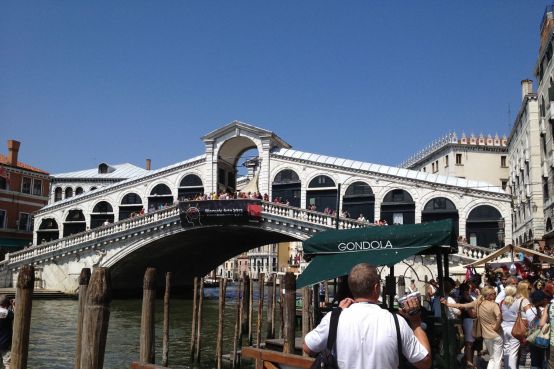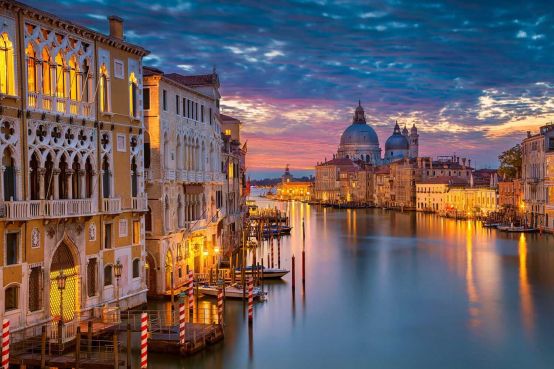The first people to settle in the Venetian Lagoon were frightened men coming form the nearby Italian mainland. For centuries these people had enjoyed prosperous lives in a chain of splendid cities of the Roman Empire strung along the north-eastern shores of the Adriatic.
But, in the early years of the fifth century with the collapse of the Roman Empire and barbarians sweeping down from northern Europe, their communities were thrown into chaos. The populations of these towns fled before the Goths, seeking a refuge where their enemies could not follow them. And so, the history of Venice began.
As further waves of invaders swept across the mainland, more and more people sought sanctuary in the channels and shoals of the lagoon. Although, as each wave of invaders passed, so people would return to the mainland to try to resume their own lives.
According to tradition, Venice formally came into existence at the stroke of noon on the 25th March, 421 A.D. But, it wasn't until around 450 A.D. that large numbers of people decided to settle permanently in the lagoon.
The arrival of Attila the Hun, and the devastation his forces caused on the mainland were enough to help the inhabitants finally realize that to try to continue to live on the mainland was no longer possible. In fact, many of the refugees found their new lives in the lagoon more congenial than they had expected.
Living in a refuge that was both uneviable and inaccessible; where there enemies lacking both ships and a knowledge of sea could not follow; the geographical isolation of these early Venetians enabled them to enjoy an indepedence from the successive upheavals by which Italy was now being shaken.
Early Venetians lived like sea birds, their land secured only by osier and wattle. The one great wealth that the Venetians enjoyed was the fish and salt from the lagoon, which gave them the power to purchase those things that they did not possess.
For nearly 1400 years, the two or three miles of shallow water separating Venice from mainland Italy, had not only protected Venice from invaders but effectively isolated the Venetians from the Italian political life.










